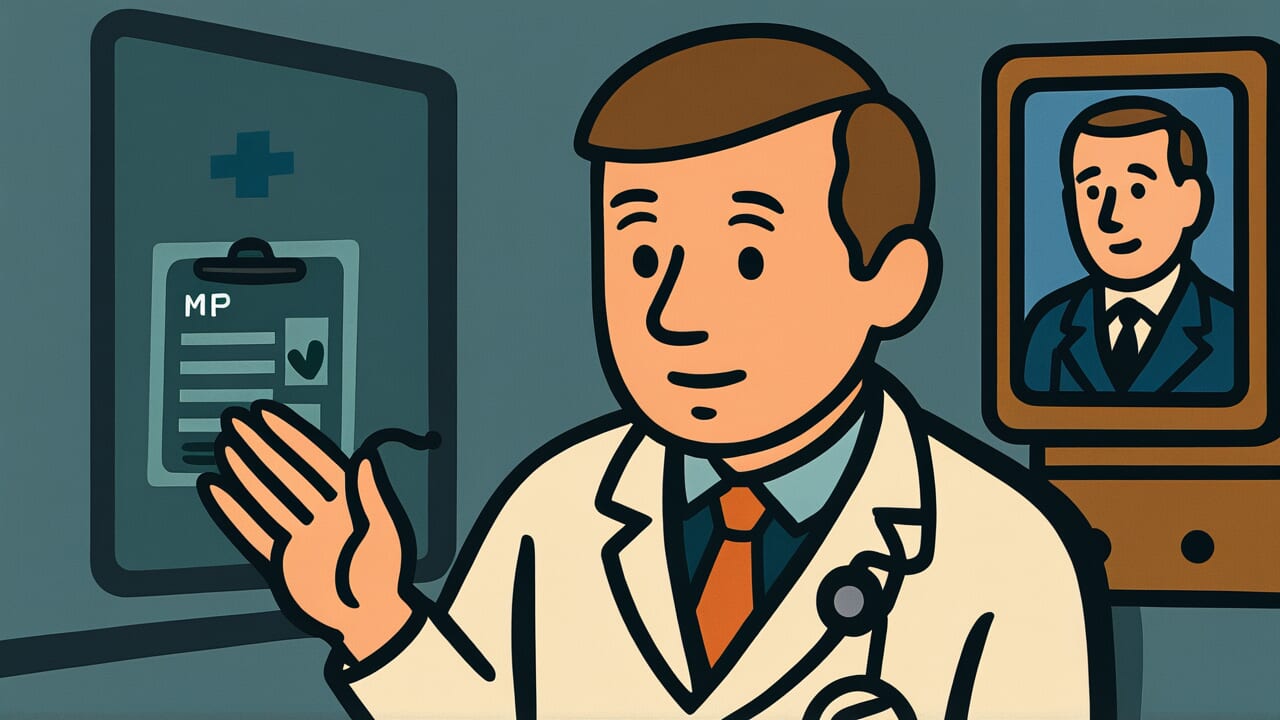How to Read “If you cannot become a prime minister, then become a good doctor”
Saishō to narazunba sunawachi ryōi to nare
Meaning of “If you cannot become a prime minister, then become a good doctor”
This proverb means that if you cannot achieve great success as a politician who leads the nation, you should aim to become a skilled doctor who saves people’s lives.
In other words, you should hold the highest aspirations in life. But if those dreams don’t come true, you should choose the next best path that still serves others.
People use this proverb when talking to someone with high ambitions. It shows that there’s more than one way to achieve your goals.
The proverb uses politicians and doctors as examples, but both share a common purpose: serving people. Either path is a noble profession that contributes to society.
Today, we understand this proverb more broadly. It’s not limited to these two specific careers.
Even if your big dream doesn’t work out, you can find another way to help people and society. This proverb expresses a positive outlook on life.
Origin and Etymology
This proverb likely comes from ancient Chinese classics. “Saishō” means the highest-ranking minister who oversees national politics. “Ryōi” refers to an excellent doctor.
In ancient China, people believed politicians and doctors shared similar qualities. Both professions required the same fundamental abilities.
This belief comes from the idea that politics and medicine both share the essential purpose of “saving people.” A prime minister heals the nation’s problems and rescues people from suffering.
A doctor, on the other hand, treats individual patients and saves lives. Both professions demand advanced knowledge, good judgment, and deep compassion for others.
Confucian thought in China strongly emphasized that talented people should contribute to society. The greatest contribution was improving the entire nation through politics.
But if that path wasn’t possible, saving individual lives through medicine was equally noble. Both were seen as worthy ways to serve humanity.
This saying came to Japan and became established as a proverb about high aspirations and practical action. It’s not just about choosing a career.
It contains a deep life philosophy: whatever path you choose, you should dedicate yourself to helping others.
Usage Examples
- After giving up on entering politics, he decided to aim for medical school with the spirit of “If you cannot become a prime minister, then become a good doctor”
- I want to teach my son “If you cannot become a prime minister, then become a good doctor” and raise him to live for others no matter what path he takes
Universal Wisdom
This proverb has been passed down through generations because it answers a fundamental human question: “How should I live my life?”
Everyone has big dreams and high ideals. But in reality, not everyone can walk the exact path they first imagined.
Experiencing setbacks and changing direction is actually normal in life. When this happens, many people feel lost and question their own worth.
The wisdom in this proverb is that life’s value should be measured not by “what position you reach” but by “what you live for.”
Prime ministers and good doctors have different positions, but they share the same purpose: saving people. Even if the form changes, you can still pursue your essential aspirations.
If you can do that, your life has value. This is what the proverb teaches.
This way of thinking shows a deep understanding of human dignity. It values not social status or fame, but the act of contributing to others.
No matter what position you hold, if you have a heart that serves people, your life will shine. This universal truth continues to resonate with people across time.
When AI Hears This
Systems thinking researcher Donella Meadows classified intervention effects on systems into twelve levels. The least effective is “adjusting numbers.” The most effective is “changing the system’s purpose or paradigm.”
This proverb shows exactly these two extremes.
A prime minister changes laws and institutions, affecting millions of people’s lives. For example, reforming the healthcare system could change the entire nation’s health with one decision.
This is a high-level leverage point: “changing the rules of the system.” A good doctor, however, treats patients one by one. This is a low-level leverage point: “working on individual parameters.”
What’s interesting is that this proverb treats both as equal. Systems theory says higher-level interventions are more effective.
But there’s a catch: “difficulty of implementation.” The probability of becoming prime minister is extremely low. Even if you do, political constraints often prevent you from implementing ideal policies.
A good doctor, on the other hand, can definitely save the life in front of them.
In other words, this proverb suggests that when you multiply impact size by feasibility to calculate “expected value,” both options have similar worth.
If you aim for system change, you must always balance these two intervention points.
Lessons for Today
This proverb teaches you that life’s value is determined not by “what you become” but by “what you do.”
Modern society tends to see reaching certain jobs or positions as proof of success. But what really matters is what you accomplish on the path you choose.
Even if you can’t join a big company or become a politician, there’s always a place where you can help people and contribute to society.
This proverb also teaches the importance of flexibility. When one dream closes, it’s not the end. It’s the beginning of new possibilities.
What matters is keeping your core values even as the form changes.
No matter what position you’re in now, you can make someone smile. Even if it’s just one person, you’re someone who changes the world for them.
You don’t need a big stage to shine. You can shine right where you are.
Believe in that and find your own way to contribute.



Comments